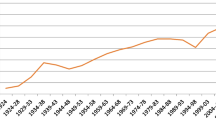Abstract
Breeding efforts for the potato sector are faced with the classical questions “What to breed?” and “How to breed?”. The answers to these questions are very diverse and challenged. Until recently these two questions were unrelated. With the increase in scientific knowledge and the public debate on modern tools, these questions have become intertwined. The “What to breed?” question has changed: breeders nowadays have to breed for wider adaptation to increasingly stressful environments with an increase in focus on quality demands by an increasingly complex and diverse food processing industry and distribution networks. The “How to breed?” question has changed also: public funding is increasingly scarce for agricultural research in general and for research on the biotechnology, molecular genetics and molecular biology of potato in particular. Young scientists also move away from the potato crop. However, the complexity of the inheritance and of the physiology of potato combined with the diverse stress to which this crop is exposed, requires large investments to be able to use modern scientific tools. Such huge investments are mostly too costly for the traditional dominant players in potato breeding despite the mergers that have taken place. The only solution for this is to link up with and stimulate international networks and use the modern information technology to obtain access to valuable scientific information. The technology used also determines public acceptance of the product, thus making the “What to breed?” and “How to breed?” questions interwoven. Another important issue that has affected the environment for potato breeders is the fact that breeders have not been defending their rights very well. Counterfeited multiplication of protected varieties has become commercially more important whereas new conventions and treaties have made the exchange and use of germplasm much more complicated. Modern potato breeders, while maintaining their classical skills, have to be prepared to be more involved in basic science, more receptive to public concerns and more proactive to protect their rights.
Similar content being viewed by others
References
Anonymous (2008a) Convention of Biological Diversity. http://www.cbd.int/handbook/. Accessed 29 September 2008
Anonymous (2008b) The International Treaty on Plant Genetic Resources for Food and Agriculture. http://www.planttreaty.org/. Accessed 29 September 2008
Davies H, Bryan G, Taylor M (2008) Advances in functional genomics and genetic modification of potato. Potato Res 51 (this issue)
Hils U, Pieterse L (eds) (2007) World Catalogue of Potato Varieties 2007. AgriMedia GmbH, Clenze, Germany and Allentown, PA, USA. ISBN 978-3-86037-310-1
Struik PC (ed) (2008) Special issue on late blight and genetic modification. Potato Res 51:1–99
UPOV (2008) Texts of the various Acts of the UPOV Convention. http://www.upov.int/en/publications/conventions. Accessed 29 September 2008
Vreugdenhil D, Bradshaw J, Gebhardt C, Govers F, MacKerron DKL, Taylor MA, Ross HA (2007) Potato biology and biotechnology. Advances and perspectives. Elsevier, Oxford ISBN:13-978-0-444-51018-1
Author information
Authors and Affiliations
Corresponding author
Rights and permissions
About this article
Cite this article
Bonnel, E. Potato Breeding: a Challenge, as ever!. Potato Res. 51, 327–332 (2008). https://doi.org/10.1007/s11540-008-9116-z
Received:
Accepted:
Published:
Issue Date:
DOI: https://doi.org/10.1007/s11540-008-9116-z




